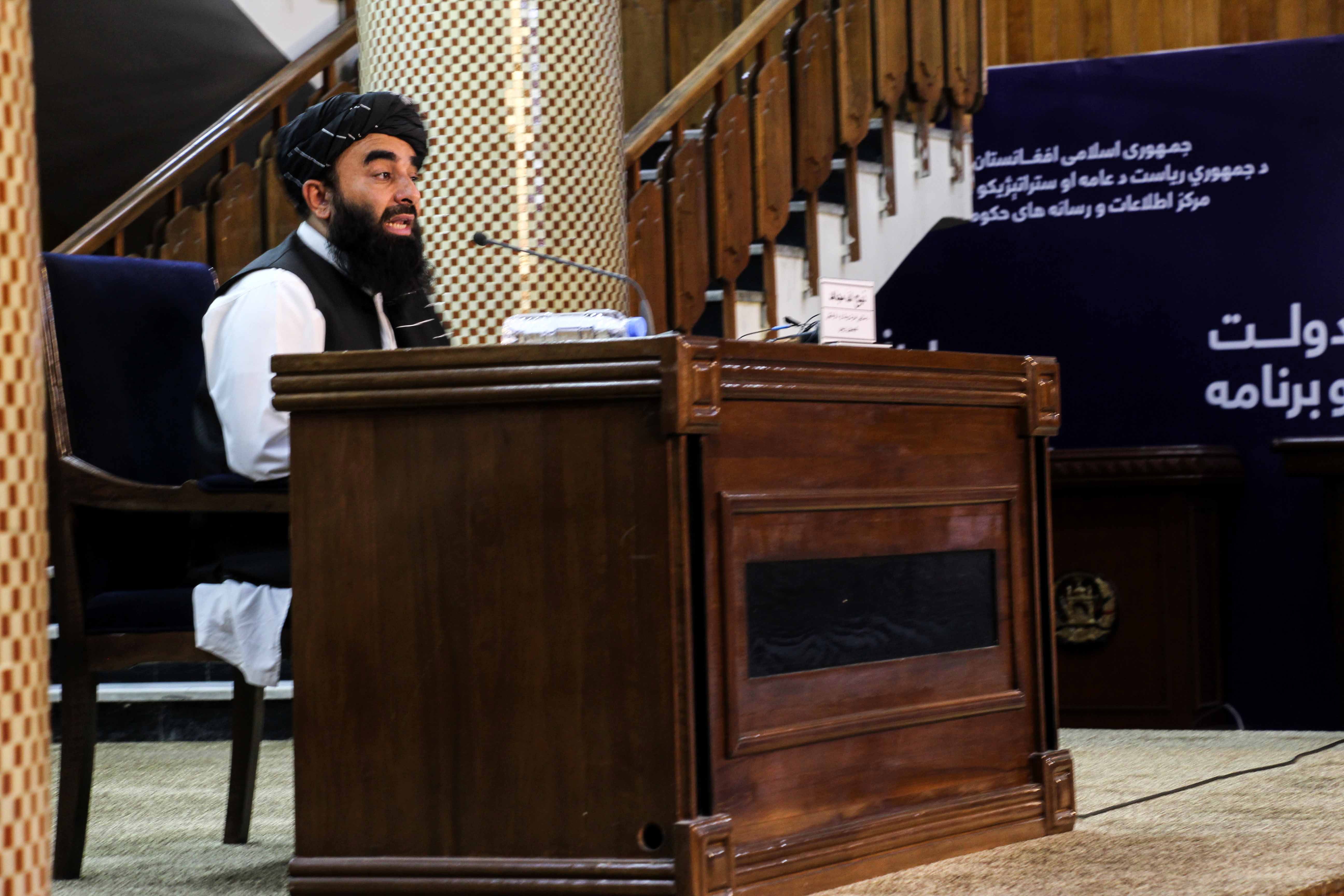Inside the Taliban’s new all-male government: From hardliners to a militant leader with $5m FBI bounty
Islamist group named the core members of its ‘acting’ cabinet for Afghanistan on Tuesday and declared the country an ‘Islamic Emirate’

Your support helps us to tell the story
From reproductive rights to climate change to Big Tech, The Independent is on the ground when the story is developing. Whether it's investigating the financials of Elon Musk's pro-Trump PAC or producing our latest documentary, 'The A Word', which shines a light on the American women fighting for reproductive rights, we know how important it is to parse out the facts from the messaging.
At such a critical moment in US history, we need reporters on the ground. Your donation allows us to keep sending journalists to speak to both sides of the story.
The Independent is trusted by Americans across the entire political spectrum. And unlike many other quality news outlets, we choose not to lock Americans out of our reporting and analysis with paywalls. We believe quality journalism should be available to everyone, paid for by those who can afford it.
Your support makes all the difference.The all-male interim Afghan government named by the Taliban on Tuesday includes several individuals targeted for UN sanctions and a militant leader with a $5m FBI bounty on his head.
When it took over the country by force last month, the group said it would form an “inclusive” administration and protect women’s rights to work.
Yet the UN has slammed the newly-announced government for being dominated by its overwhelmingly ethnic Pashtun leaders, and the UN Women has called the 33-member cabinet with not a single woman “a further step backwards”.
Here’s what we know about the key members of the Afghanistan government formed by the Taliban.
Mullah Hassan Akhund - Acting prime minister

Akhund, who is one of the founders of the Taliban, has been named the acting prime minister of Afghanistan and heads the powerful decision-making body Rehbari Shura, or leadership council.
He has been on the UN sanctions list and has generally maintained a lower profile than other senior leaders of the Islamist group. He was previously the foreign minister and then deputy prime minister during the Taliban government in 1996-2001. Despite having less international exposure than some others, he remains one of the group’s most influential members.
Mullah Abdul Ghani Baradar, who is also on the UN sanctions list, was named Akhund’s first deputy. He is another co-founder of the militant movement, and oversaw the signing of the US withdrawal agreement last year.
Molavi Hannafi has been appointed his second deputy.
Mullah Yaqoob - Acting minister of defence
Yakoob is the son of late Taliban founder Mullah Omar, the group’s one-eyed supreme leader. He gained prominence in 2015 when he called for unity within the group in an audio message after the death of his father.

He was appointed to lead the group’s military commission in 14 provinces of Afghanistan and then became military chief of the Taliban in May 2020.
Serajuddin Haqqani - Acting minister of interior
The appointment of Haqqani, who is on the FBI wanted list with a bounty of $5m (£3.6m) on his head, has caused the most immediate alarm among observers.
He is head of the Haqqani Network militant group, which is affiliated with the Taliban and named in some of the deadliest attacks in the country during the war with US-led international forces. He reportedly oversaw a suicide bomb attack using an explosive-filled ambulance in Kabul in 2017 that killed 103 people.
According to the FBI, Haqqani is “wanted for questioning in connection with the January 2008 attack on a hotel in Kabul... that killed six people, including an American citizen”.
Amir Khan Muttaqi - Acting foreign minister
Muttaqi, who is a senior Taliban leader, took part in the Doha peace talks last year with then-US president Donald Trump. He served as a minister of culture and information as well as education minister during the previous Taliban government.
Qari Din Hanif - Acting minister of economy
Din Hanif, who is of Tajik descent, is one of the few non-Pashtun leaders appointed in the new cabinet.
He was minister of planning and of higher education during the 1996-2001 Taliban government and will be tasked with recovering an Afghan economy that has been drained by decades of war and hammered during the last two months amid the US troop withdrawal.
Abdul Haq Wasiq - Acting director of intelligence
Haq Wasiq was held in extrajudicial detention at Guantanamo Bay in Cuba and released in 2014. His release came after mediation and in exchange for the release of captured American soldier Bowe Bergdahl.
He served as the Taliban’s deputy minister of intelligence in the previous government.

Also on Tuesday, chief Taliban spokesperson Zabihullah Mujahid announced that Afghanistan will again be referred to as an “Islamic Emirate” and its supreme leader would be Hibatullah Akhundzada.
In his first statement after seizing power from the Afghan government, Akhundzada said: “In the future, all matters of governance and life in Afghanistan will be regulated by the laws of the holy sharia.”
When asked about the lack of inclusivity in the new government, Mujahid said: “Some ministries and deputies and many top positions are remaining. We will try to include people from across the country into it. It’s not a permanent cabinet and we will try to make it more inclusive.”
The US State Department’s spokesperson said they are concerned by the affiliations and track records of some of the individuals in the new cabinet. It added that there is still in “no rush” to recognise the Taliban-appointed government.
The new cabinet was announced on the same day as at least two people were shot dead and eight wounded in a protest in Herat city, in western Afghanistan, according to a doctor there.
Join our commenting forum
Join thought-provoking conversations, follow other Independent readers and see their replies
Comments